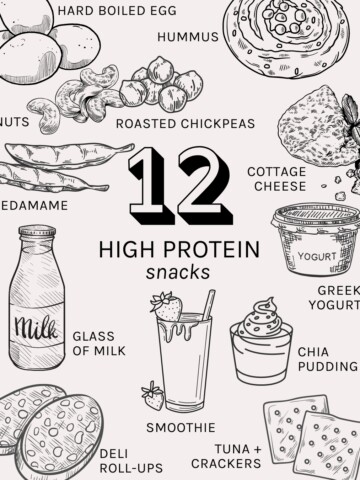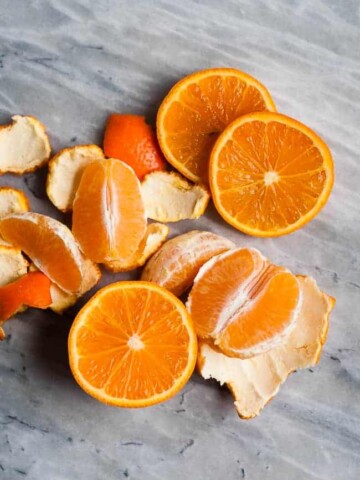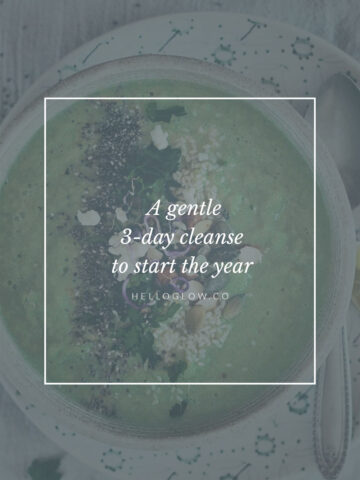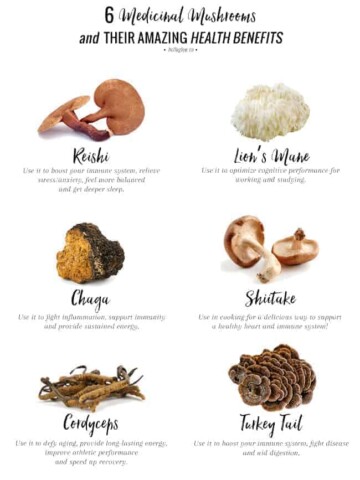If you’re putting in the time hitting the pavement or going to the gym, you likely want to get the best possible return on your exercise investment. Hydration and nutrition are both crucial factors for getting the best results from your workout.
First things first—water! Make sure you’re properly hydrated if you want to build muscle and crush your workout.
Before we get into what to eat before exercising, let’s talk about the benefits of not eating anything pre-workout or fasted exercise. Working out while fasting, like first thing in the morning before breakfast, activates your sympathetic nervous system (SNS).
Since your SNS controls your body’s fat-burning processes, fasted exercise forces the breakdown of fat and glycogen for energy. Studies have shown that fasting before aerobic training leads to reductions in both body weight and body fat [source].
Should You Eat Before A Workout?
Seems like we should all be exercising on an empty stomach, right? Not so fast.
A variety of factors play a role in whether it’s suitable for an individual to exercise while fasting, such as age, pregnancy, medications, medical history, hormone imbalances, level of fitness. I believe the best approach is to listen to your body!
Give it a try and see how it goes. If you feel awful (weak, nauseous, lightheaded) during your workout, you may want to eat a small snack or meal before you exercise. See below for some ideas.
What To Eat Before A Workout
If you’re a morning exerciser…
Matcha
Matcha tea is high in antioxidants and contains L-theanine, an amino acid that helps improve focus and mental alertness [source]. Matcha provides prolonged energy without the crash aftermath of coffee and has been shown to help the body burn fat and reduce inflammation [source].
If you work out first thing in the morning, drink matcha about half an hour before exercising to increase endurance, boost metabolism, encourage fat burning, and speed up post-workout recovery.
Cordyceps
Cordyceps mushroom is an awesome pre-workout energizer. It’s not a stimulant but an adaptogen that supports your adrenal glands and helps your body produce and maintain consistent energy levels [source].
It helps fight fatigue, boosts strength and stamina, improves exercise performance [source], and expedites recovery from strenuous workouts. Add ½ teaspoon of cordyceps powder to your matcha, or mix up a Four Sigmatic Cordyceps Coffee or Hot Cacao.
Chia pudding
Chia seeds are tiny powerhouses that counteract inflammation, increase energy, reduce fat, and give you more endurance power [source]. They’re easy to digest, especially when soaked in almond or coconut milk overnight to make chia pudding. They’re a great source of plant-based protein and healthy fat to fuel your workout.
Smoothie
Try a delicious berry smoothie pre-workout. It’s a great combination of protein, fat, and low-sugar carbs. I used MCT oil as the healthy fat because medium-chain triglycerides (MCTs) are a special type of fatty acids quickly absorbed by the body and efficiently converted to fuel for immediate use. MCTs have been shown to enhance thermogenesis (heat production) in the body, thereby promoting fat burning [source].
If you’re a lunchtime or evening exerciser…
Ideally, your breakfast (and lunch) contain a good balance of protein, healthy fats, and complex carbs that work together to keep you full and energized for 4+ hours. In this case, you may be able to get to that noon or 5:30 p.m. workout class without needing to eat first since you’ll be eating your lunch or dinner right after.
I recommend tuning in to your hunger cues and skipping the pre-workout snack if your body is not truly hungry at that time. But if your tummy is growling, you can have a light snack to prevent you from being ravenous and wanting to eat everything in the fridge when you finish!
9 simple snack options:
1. Apple slices or celery sticks with a tablespoon or two of peanut or almond butter
2. Carrot sticks with 3 tablespoons of hummus
3. 1–2 hard-boiled egg(s) with a sprinkle of salt and black pepper
4. ¼ – ½ of an avocado spread on a brown rice cake with a sprinkle of sunflower seeds and a pinch of salt
5. Small handful of homemade trail mix – my favorite combo is almonds, walnuts, pumpkin seeds, coconut flakes, and cacao nibs
9. No-bake collagen protein bites
What To Eat After A Workout
Hands up if you’ve ever found yourself halfway through a workout only to become so distracted by what you’ll be eating afterward that you can hardly wait to step off the treadmill? If you’re finding yourself too hungry while exercising, you should probably consider what to eat before a workout and then think about optimal nutrition for your workout recovery.
You may have heard that you should eat some protein and carbs during the post-workout “critical window.” That’s true—but only in some cases.
Here’s the deal: if you’ve had a pre-workout snack/meal or any other recent meal, there’s no crucial do-or-die need to eat after your workout—especially if you’re not hungry.
This is particularly true if you have no other workouts planned for the day since your body is able to replenish its energy levels within 8 hours of normal eating.
But it does make sense to fuel within that 20- to 60-minute window if you a) haven’t had anything to eat before your workout or b) you’re going to be working out again within the next 8 hours.
Protein Post-Workout
Studies show that muscles’ elevated sensitivity to protein lasts 24–48 hours after exercising, depending upon the type of exercise performed [source]. So whether you have that protein shake straight after your HIIT class or at your next main meal, the muscle protein synthesis will still happen. Don’t worry too much about protein timing—just make sure you’re getting a good amount of it over the course of the day from a variety of whole food sources.
The daily recommended intake is 0.35 grams of protein per pound of body weight [source], although protein needs vary based on age, activity level, pregnancy, health conditions, etc. As with everything in life, moderation is key!
The Goldilocks principle [source] certainly applies to protein intake: not too much, not too little, just right.
Too little protein can cause wonky blood sugar and loss of lean body mass, while too much can cause your body to convert the protein you’re eating into excess blood sugar through a process called gluconeogenesis. Taking an excess of animal protein, in particular, has also been shown in studies to increase the risk of heart disease and cancer [source].
6 protein-rich meals and snacks to have post-workout:
Smoothie with 1 scoop of collagen or whey protein powder, a handful of greens, ½ cup of berries, 1 tablespoon of almond butter or ½ avocado, almond or coconut milk, plus a dash of cinnamon. Or try one of these smoothie recipes.
Veggie stir fry (cooked in coconut oil) with chicken or beef
Big salad with lots of veggies, chicken or fish and a homemade oil- or nut butter-based salad dressing
Golden milk latte made with full-fat coconut milk, turmeric, cinnamon, and a scoop of collagen
Bone broth – with an abundance of amino acids, bone broth provides the substrate for rebuilding muscle protein
Carbs Post-Workout
After finishing a cardio workout, your body is more insulin sensitive, and carbs are less likely to be shuttled to the liver and converted to fat. Instead, they are likely to end up getting ushered by insulin into the muscles and stored as glycogen [source].
That said, there may be downsides to consuming insulin-stimulating carbs (like bread, pasta, white rice, sugary sports drinks) after exercise.
For some people, eating a high carb snack will result in an insulin surge followed by rebound low blood sugar and subsequent stress response (cortisol increase) that can manifest as carb cravings, fatigue, impaired mental performance, and suboptimal recovery.
Over-stimulating insulin by eating carbs high on the glycemic index can also throw a wrench in your fat burning efforts by diverting glucose (from the high-carb snack) directly to fat storage. This is obviously not conducive to most people’s exercise goals!
With this in mind, I recommend steering clear of refined carbs and sugar and instead getting your carbs from complex, high-fiber, nutrient-dense sources such as starchy veggies, fruit, and gluten-free minimally processed whole grains (e.g., oats, cooked brown rice).
5 post-workout meals and snacks that are a good source of healthy carbs:
Smoothie – a piece of fruit (e.g., banana, strawberries), 1 tablespoon almond butter, 1 scoop of protein powder, a generous dash of cinnamon, and unsweetened almond or coconut milk.
Half a sweet potato drizzled with coconut oil and topped with baked chicken and some leafy greens
Quinoa fried rice – ½ cup cooked quinoa, egg, and lots of veggies
Apple with a tablespoon or two of almond butter or a handful of macadamia nuts
Raw coconut water (like Harmless Harvest) with a scoop of collagen powder
This article was medically reviewed by Dr. Gina Jansheski, a licensed, board-certified physician who has been practicing for more than 20 years. Learn more about Hello Glow's medical reviewers here. As always, this is not personal medical advice and we recommend that you talk with your doctor.
78





Leave a Comment